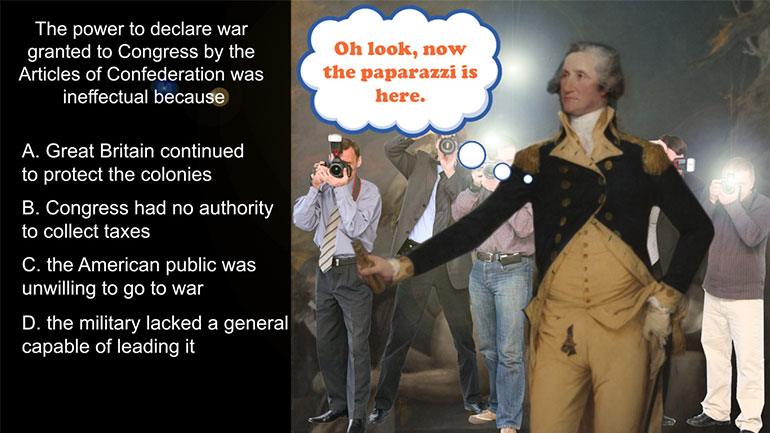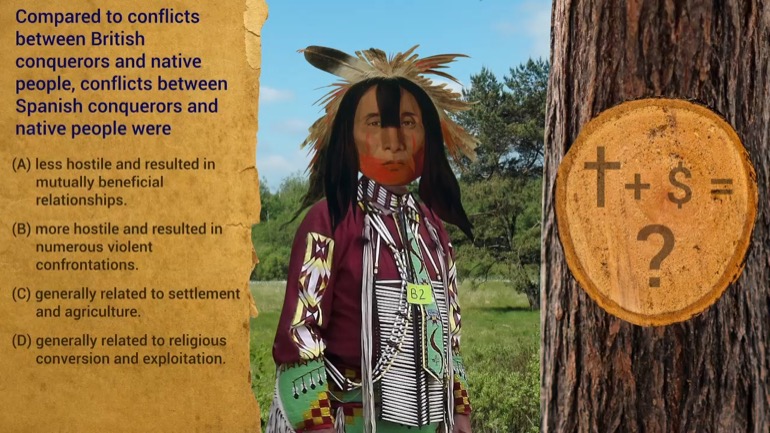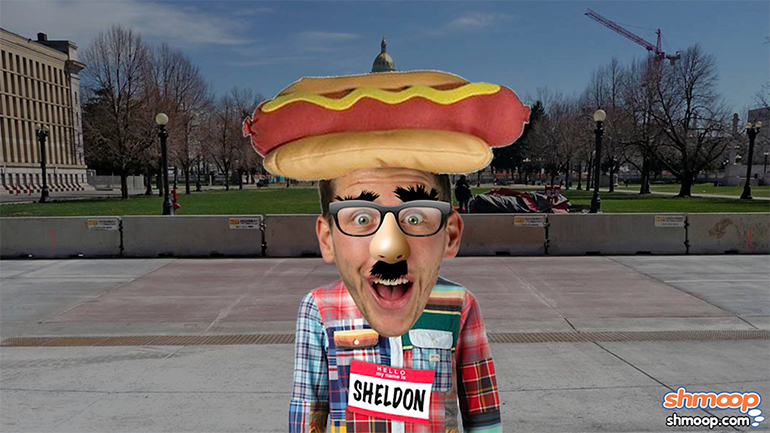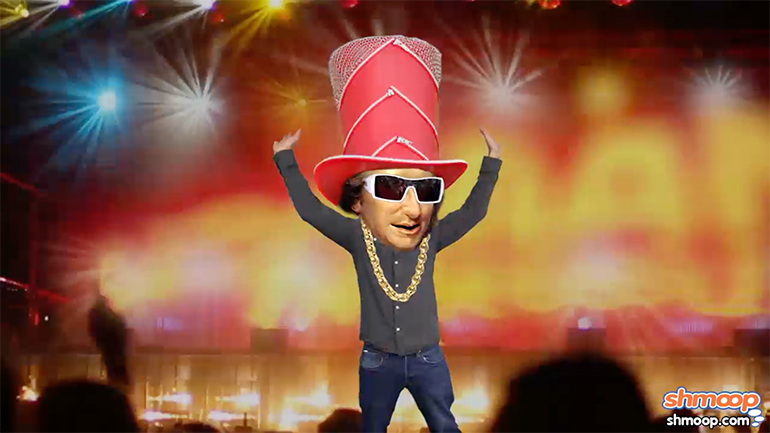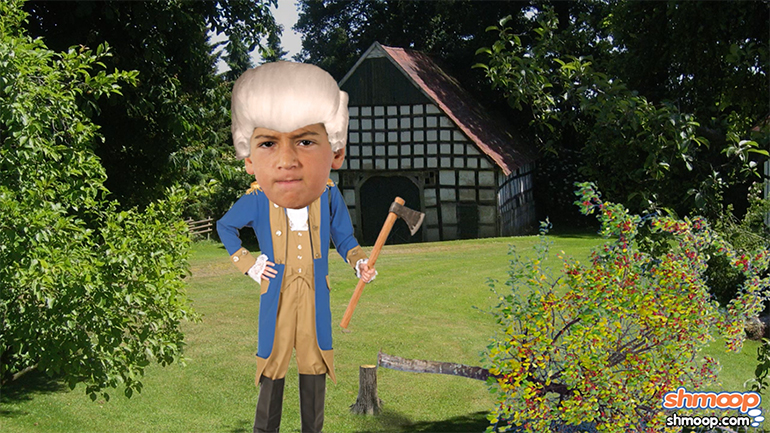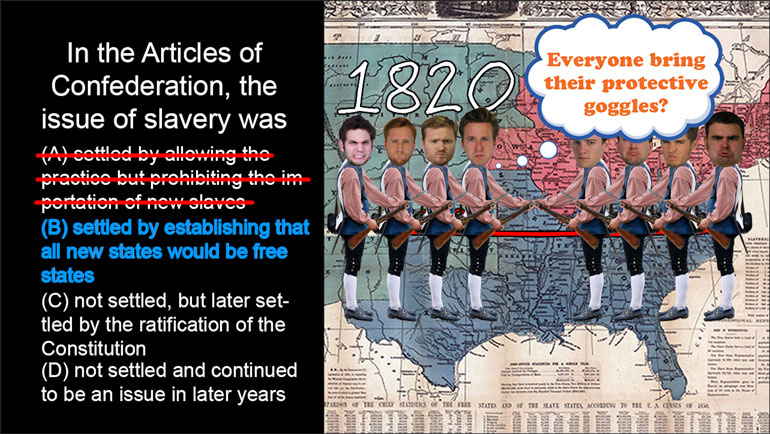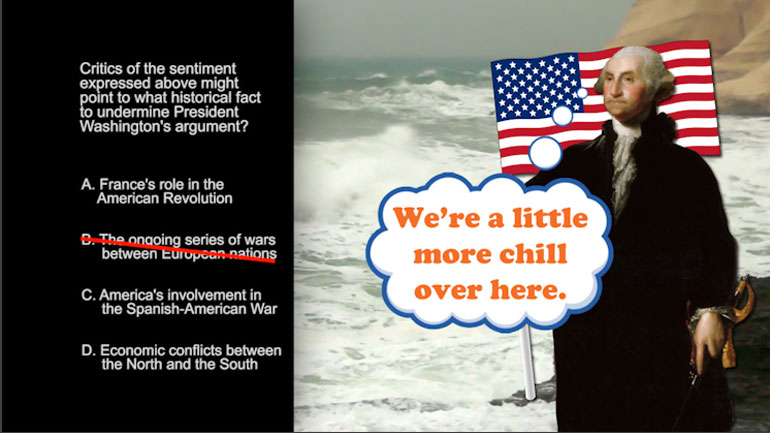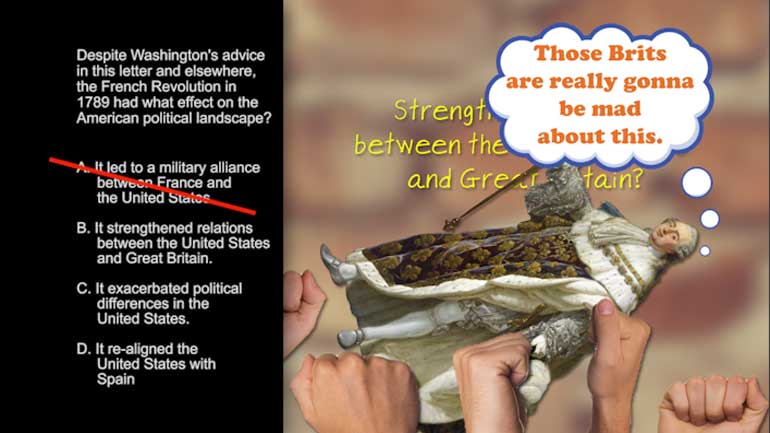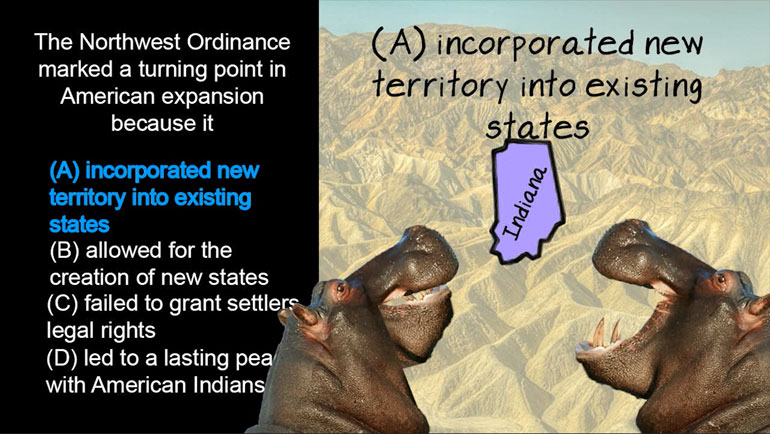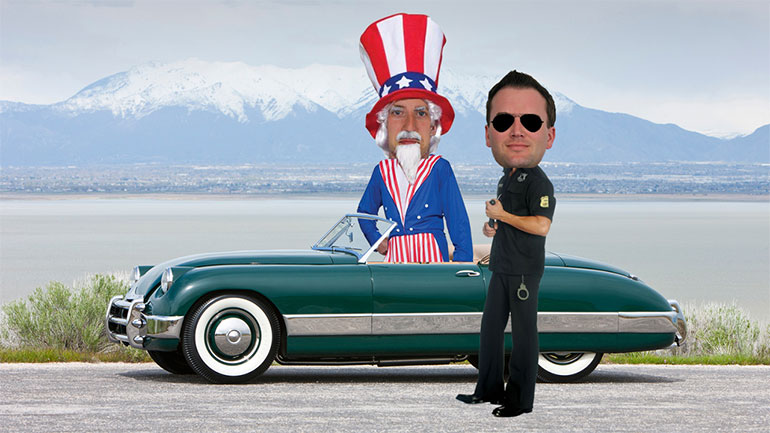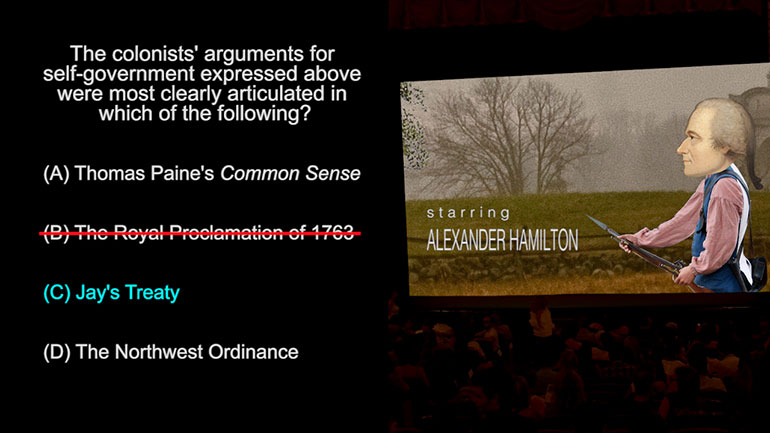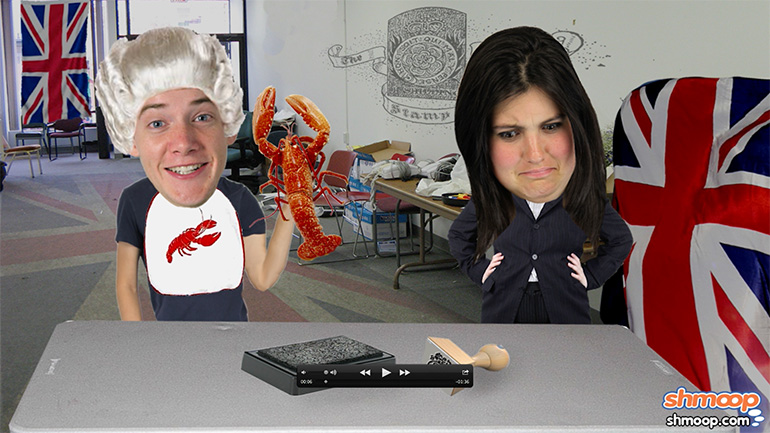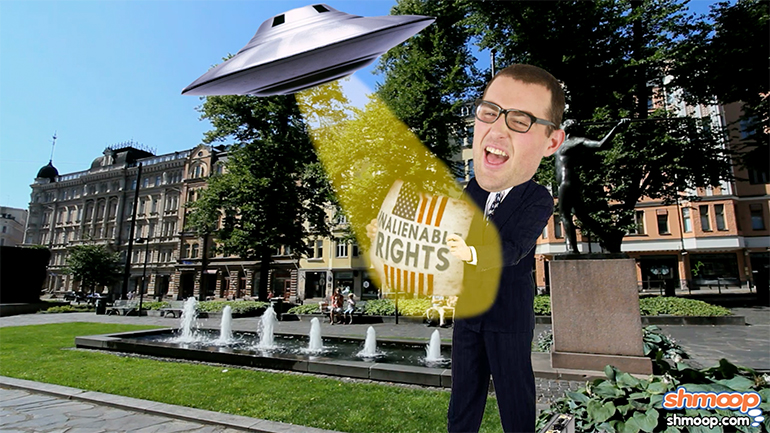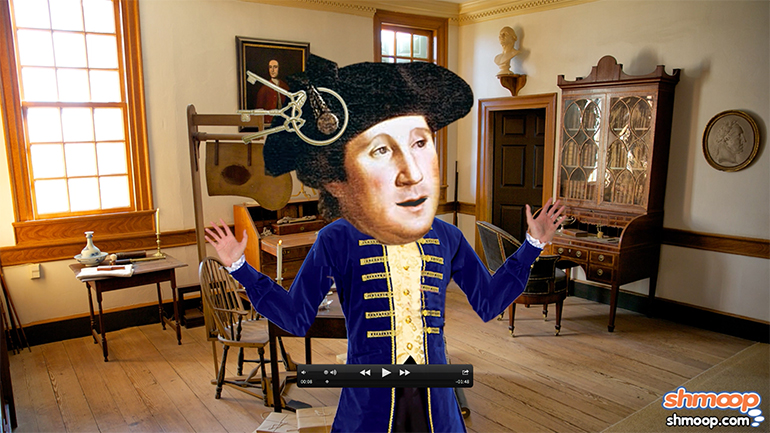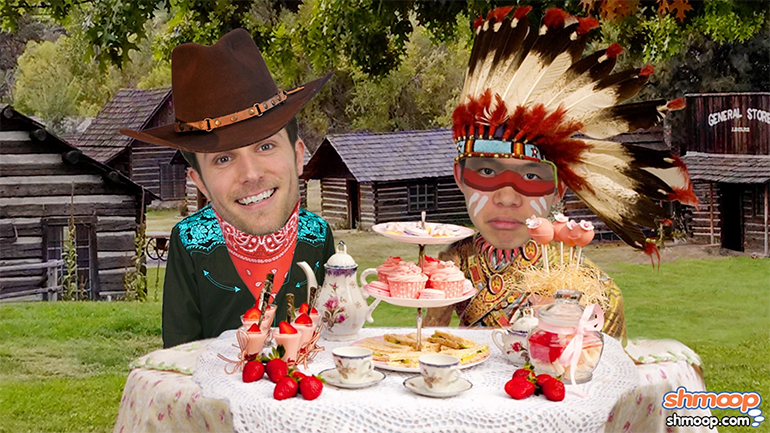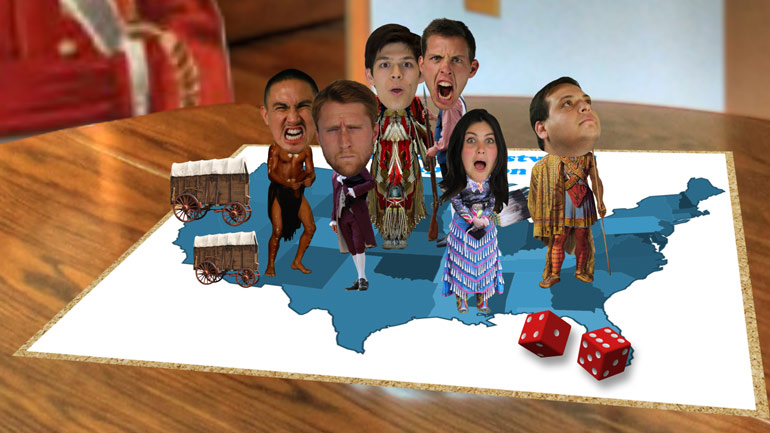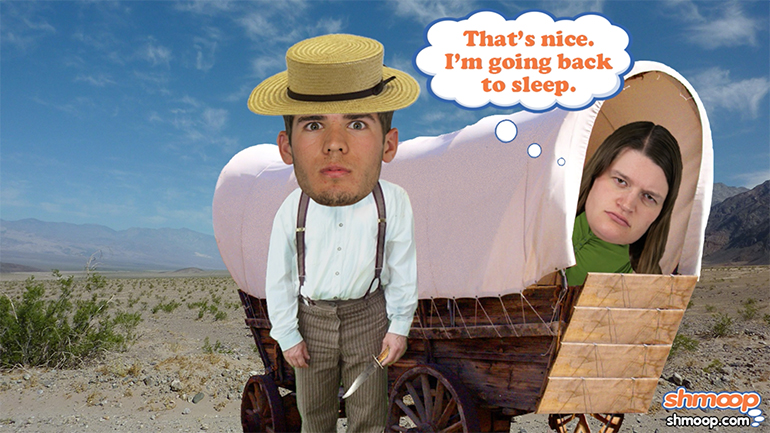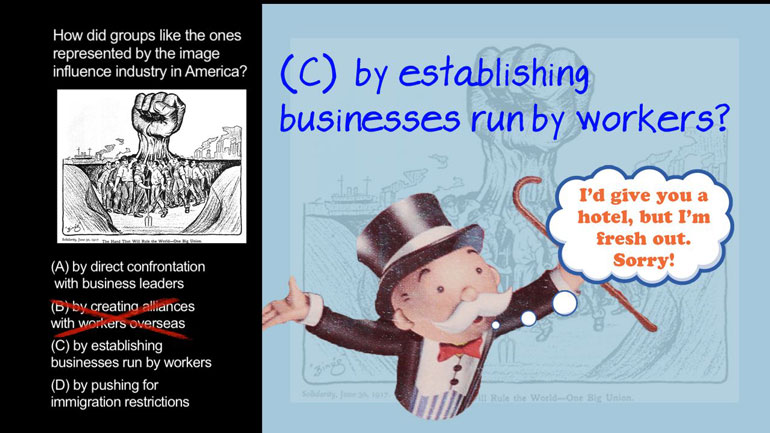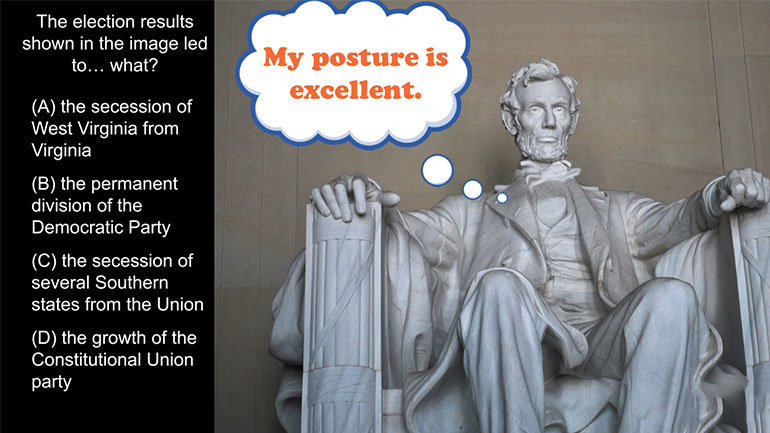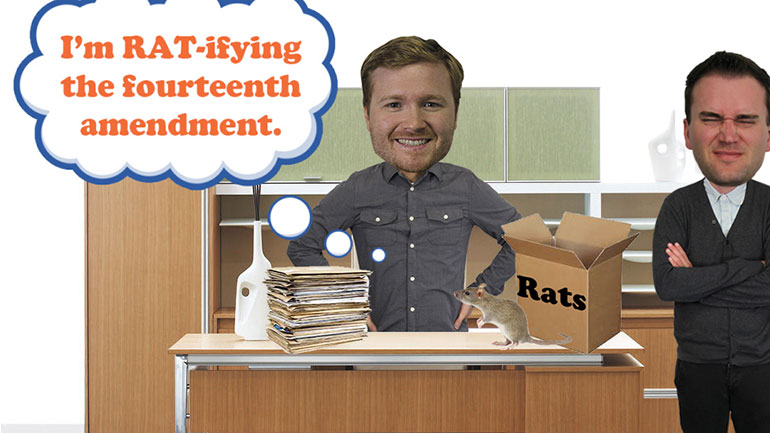ShmoopTube
Where Monty Python meets your 10th grade teacher.
Search Thousands of Shmoop Videos
Period 3: 1754–1800 Videos 20 videos
AP U.S. History 1.1 Period 3: 1754–1800. Why was the power to declare war granted to Congress by the Articles of Confederation ineffectual?
AP U.S. History 1.2 Period 3: 1754-1800. The structure of the government that the Articles of Confederation established most clearly reflects the R...
AP U.S. History 3.4 Period 3: 1754-1800. Common Sense had the most in common with which of the following?
AP U.S. History 3.3 Period 3: 1754-1800 210 Views
Share It!
Description:
AP U.S. History 3.3 Period 3: 1754-1800. The argument in the excerpt directly reflects a continuation of which of the following Enlightenment beliefs?
Transcript
- 00:00
Thank you We sneak and here's your shmoop du jour
- 00:05
Brought to you by in alien nable rights No matter
- 00:08
how hard the ufo's try to abduct them they never
- 00:11
will Check out the excerpt on drama You got momentum
- 00:14
in okay And now for our question the argument in
Full Transcript
- 00:17
the excerpt directly reflects a continuation of which of the
- 00:20
following enlightenment beliefs and here potential answers I believe that
- 00:26
basically pains telling us here that the english constitution sucks
- 00:30
because it comes from a time when everybody thought tyranny
- 00:33
was the cat's pajamas So bad news for a tyrant
- 00:36
and for the cat since pain is so obviously anti
- 00:39
tyrant will start by taking c out of the running
- 00:42
Absolute sovereignty means that a ruler can make anybody do
- 00:46
anything here she wants Like if the king or queen
- 00:48
wanted everybody to bathe and fish they'd have to do
- 00:51
it for else But we probably do that just for
- 00:53
the halibut Anyway As the excerpt shows pain thought this
- 00:57
kind of system was the opposite of cool Next will
- 00:59
eliminate option a The belief in constitutionalism Yeah not quite
- 01:03
what we're looking for Pain uses this excerpt toe bad
- 01:06
Mouth a constitution so it's kind of hard to argue
- 01:10
that this snippet is supporting the idea of constitutionalism Not
- 01:14
that pain was against constitutions in general he just thought
- 01:17
ones that propped up tyrants oughta be scrapped Well d
- 01:20
says that pains using the excerpt toe pump up state's
- 01:23
rights well while it's probably true that pain would have
- 01:25
been a fan of the idea there is nothing in
- 01:27
the excerpt about It Looks like pain won't be pumping
- 01:31
anything up anytime soon so we can say farewell Didi
- 01:35
answer be on the other hand is here to stay
- 01:37
The enlightenment idea of transnational human rights had been spreading
- 01:41
for sometime throughout the colonies when thomas paine anonymously published
- 01:44
the game changing pamphlet Common sense The fact that the
- 01:47
extract is so critical of tyranny reflects that idea that
- 01:51
all individuals are born with certain rights that no tyrant
- 01:55
should be ableto take We once tried to convince the
- 01:57
city that we were born with the right to park
- 01:59
anywhere but no that didn't go over very well We're 00:02:03.48 --> [endTime] still trying
Related Videos
AP U.S. History Diagnostic 1. Relationships like the one shown in the image resulted in the development of...what?
AP U.S. History Diagnostic 15. How did groups like the ones represented by the image influence industry in America?
AP U.S. History Diagnostic 10. What led to the splintering of the political parties shown in the image?
AP U.S. History Diagnostic 11. The election results shown in the image led to...what?
AP U.S. History Diagnostic 12. How did the Reconstruction Acts open up political opportunities for former slaves?
